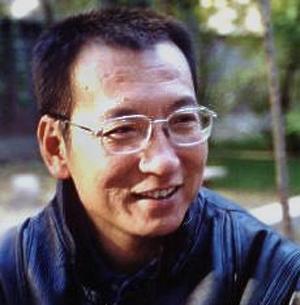Scant Support in Taipei for Liu Xiaobo Release
/Sam Hargadine, ContributorLast Modified: 11:51 a.m. EDT, 1 March 2013
CHINA - The Taipei Times reported Thursday that several human rights activists from Mainland China have for mally petitioned the Taiwanese President to assist in the release of Liu Xiaobo, a Nobel laureate.
mally petitioned the Taiwanese President to assist in the release of Liu Xiaobo, a Nobel laureate.
Liu won the Nobel Peace Prize in 2010 for his work criticizing one party rule in China. He was unable to collect his prize due to his current eleven-year prison sentence.
In Taipei, exiled Chinese are pressuring the island’s democratically elected President, Ma Ying-jeou, who they say ought to file grievance with Beijing over the treatment of Liu.
Wang Dan, a petitioner, stated: “As a nation that stands behind universal values of human rights, I hope that Taiwanese will not forget their obligations to help promote human rights protection around the world, including in China.”
Wang later asserted that it would be unwise for the Taiwanese people to ignore Liu Xiaobo’s plight because it could harm cross-strait exchanges if China “remains a superpower in human rights violations.”
The opposition party in Taiwan, the Democratic Progressive Party (DPP), emphasizes differences with the mainland and flirts with the idea of declaring independence from China. They have taken to the petition and are also pressuring the current President to make an official statement of support for Liu.
Despite this, President Ma is unlikely to act. He did not formally receive the petitioners when they delivered their appeal to the Presidential Office. Additionally, Ma’s democratic mandate largely rests on Taiwan’s desire for peaceful and profitable relations with the mainland. Antagonizing Beijing on this subject will do little to help that aim.
Follow Sam Hargadine on Twitter Twitter: @nahmias_report Contributor: @SamHargadineRelated articles
- Supporters Of Liu Xiaobo The Only Imprisoned Nobel Laureate And His Wife Liu Xia Deliver Petition To Chinese Embassies Across World (albanytribune.com)
- Supporters Of Liu Xiaobo The Only Imprisoned Nobel Laureate And His Wife Liu Xia Deliver Petition To Chinese Embassies Across World (eurasiareview.com)
- Appeal to set Liu Xiaobo free (thehimalayantimes.com)
- Nobel laureates urge China to release Liu Xiaobo (straitstimes.com)
- China - 450.000 Citizens in 130 Countries Join 135 Nobel Laureates to Demand Release (en.rsf.org)
















